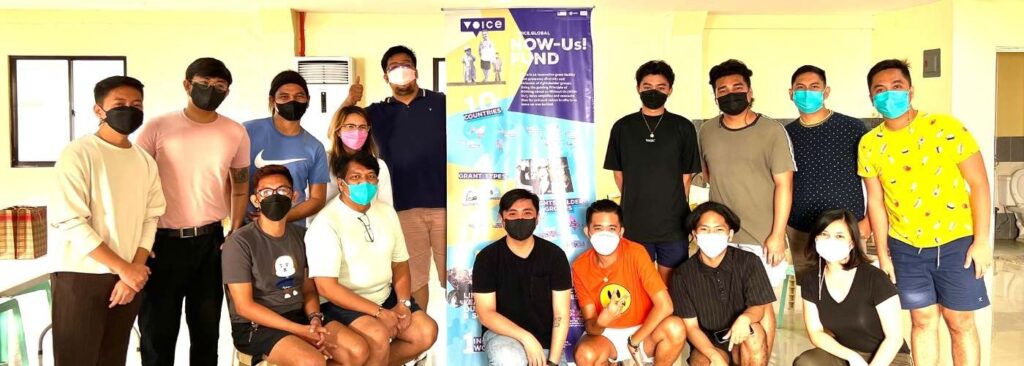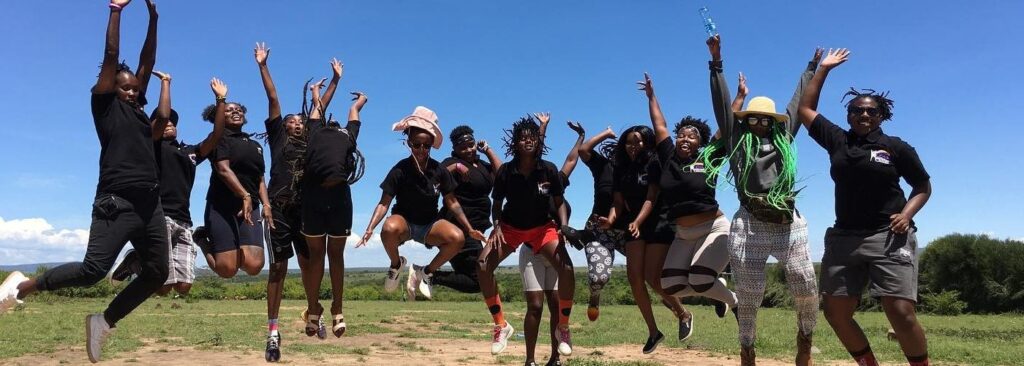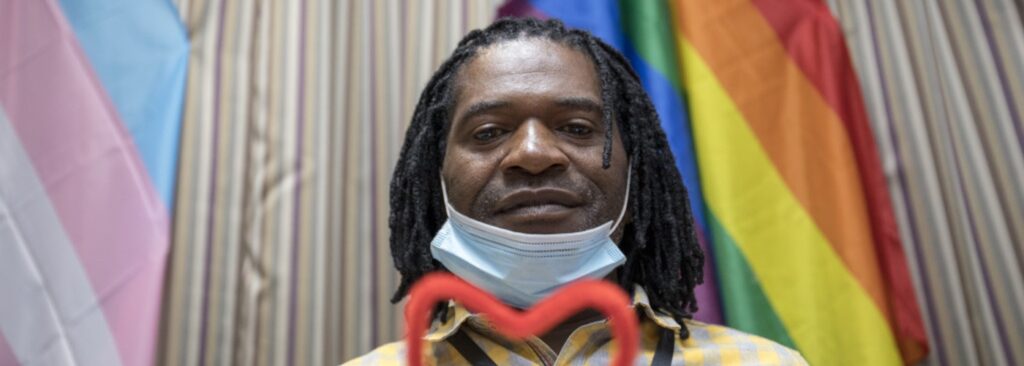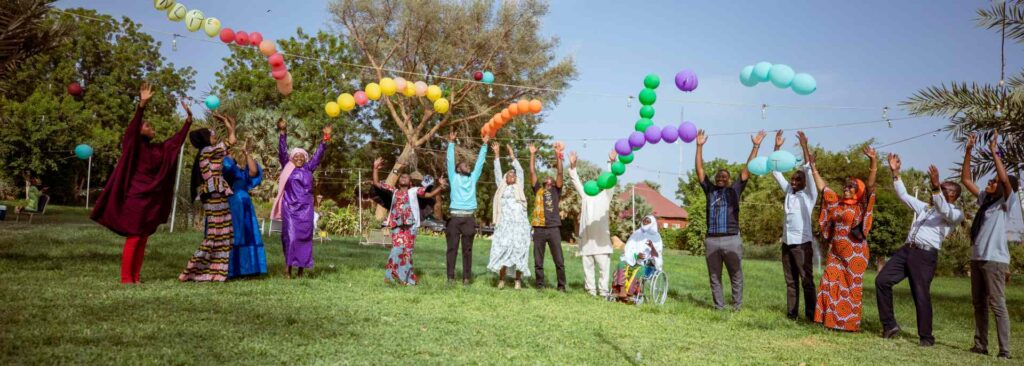With Hivos’ support, the Kenyan organization Sullivan Reed developed a special initiative for LGBTIQ+ students from the rural region of Kakamega, in western Kenya. They can now gather together safely, which makes them feel less lonely and more confident in being open about who they are.
“We are working on the acceptance of sexual and gender diversity in Kenya,” says Levis Nderitu, co-founder of Sullivan Reed. “That’s necessary because the Kenyan Constitution states, for example, that homosexuality is illegal. Many LGBTIQ+ people have to deal with discrimination, stigmatization and violence. It’s very difficult for them to come out. They also don’t dare be open about who they are at work, because there’s a good chance they’ll get fired.”
Equal rights and opportunities
Sullivan Reed is committed to equal rights and opportunities for LGBTQ+ people. It makes them more resilient, so they can better stand up for their rights. The organization also works to get rid of negative stereotypes and prejudice through education and positive media coverage.
How difficult is it to operate in a country where homosexuality is prohibited? “It’s a great challenge,” says Nderitu. “Being different is not easily accepted. You go against the grain, and that comes with obstacles. But overcoming those challenges and really achieving something is very satisfying.”
A home for students from Kakamega
Sullivan Reed developed this special project with support from our Voice program. “There are already a number of places in Kenyan cities where LGBTIQ+ students can gather safely, but there was no such thing in rural Kakamega,” he tells us. “Some 40,000 students live there, and up to five to ten percent of them are LGBTIQ+. The lack of places to gather safely led to loneliness, and the students didn’t feel at home anywhere.”
That is why Sullivan Reed started organizing monthly meetings for them in 2019. There they could talk about relevant topics, like coming out and finding a job, but also have a bit of fun.
Online meetings
The meetings first took place in a restaurant and drew about fifty to a hundred students. When the pandemic broke out in March 2020, Sullivan Reed switched to online meetings. Nderitu says it wasn’t as difficult as it might seem. “We trained employees and members how to use Zoom. Fortunately, we managed to do this quickly, and so we organized our first online meeting in April.”
For Nderitu, the highlight of this period was the online celebration of IDAHOT on May 17. “We discussed breaking the silence around the LGBTIQ+ community, but also invited a saxophonist to really throw a party,” he laughs.
More strength and confidence
Covid-19 also had a silver lining for the project, explains Nderitu. “We created a place for the LGBTIQ+ community that otherwise would not have existed. A place that suits young people well in this digital age and where they feel safe and at home. We can now also reach many more: people who live far away, but also people who feel safer in an environment where they can remain anonymous.”
Nderitu is very happy with the results Sullivan Reed has achieved. “It’s great to hear from students that they feel supported and strengthened by our meetings. They are now more confident in being open about who they are,” he says, smiling.
About Voice
Voice is an innovative grant facility executed by a consortium between Oxfam Novib and Hivos. It supports rightsholders and groups facing marginalization or discrimination in their efforts to express their views and demand their right to responsive and inclusive societies. Specifically: people with disability; LGBTI+ people; women facing exploitation, abuse or violence; vulnerable elderly and the youth; Indigenous people, and ethnic minorities.










